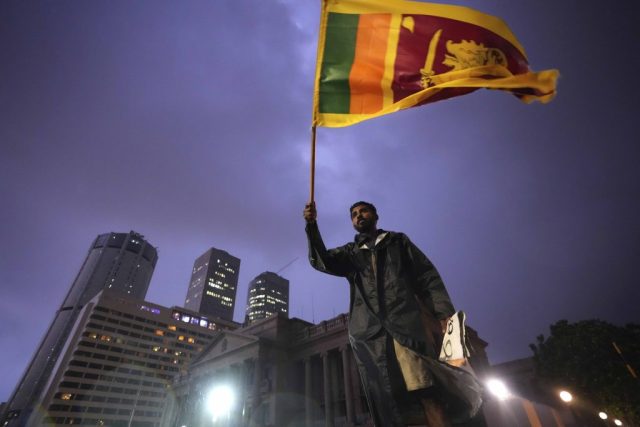Eventually, Sri Lanka became a defaulter. In the wake of the unprecedented economic crisis, the Sri Lankan government announced in the month of April 2022 that its foreign exchange reserves had dwindled so much that it was no longer possible for them to repay foreign debt installments. This time they defaulted on the loan in an absolute sense. The island is the first defaulter in its 60-year history. The article is about Sri Lanka Announced Defaulting On All Its External Debt Officially.
On May 18, Sri Lanka was due to repay an installment of about 80 million dollars against a sovereign loan. The 30-day grace period of this installment ends on the day. The country’s central bank governor says they are now in default. “Our position on this is apparent. We cannot repay the debt unless the sovereign lenders restructure our debt,” he said. That’s why we say it’s a pre-emptive default.
The main reason for the demise of defaulting Sri Lanka is the indiscriminate sale of state bonds to foreign investors commercially. In addition, the Sri Lankan government has sold savings certificates in Dedar dollars. These dollar-based savings certificates account for about half of the country’s total foreign debt. However, the Sri Lankan government has failed to pay the installment-based profits of these savings certificates due to the dollar depreciation in the state reserves.
The Sri Lankan government reaches out to the IMF for dollars to cover emergency import costs. If the situation improves, the interest on the savings certificate will be repaid later to foreign investors. As a result, Sri Lanka is primarily rescheduling loans taken through savings certificates sold in foreign currency. This is about 50 percent of Sri Lanka’s total foreign debt.
Analysts say President Gotabaya Rajapaksa has failed to show foresight in running the state. There was mismanagement, and there was policy weakness with it. Some policies, such as abrupt bans on chemical fertilizers and tax cuts, have been a disaster for Sri Lanka. This has had a direct impact on the people. As a result, thousands of people took to the streets, which later turned into violence.
Meanwhile, Fitch Ratings and S&P Global Ratings were forecast last month that Sri Lanka would not be able to repay its international debt due to the final financial crisis. As a result, Sri Lanka is expected to spend at least $690cr in 2022 r on global debt and interest payments. However, the country’s official data says that the foreign exchange reserves have come down to only 231 million.
Debt default will reduce Sri Lanka’s debt. In other words, Sri Lanka will be short in the eyes of the international organizations that determine the creditworthiness of different countries. It is an insult to any country. In addition, it will be more difficult for Sri Lanka to get new loans from the international market. However, after the loan default, the BBC contacted various credit rating agencies, and they did not want to comment on the matter.
Meanwhile, after Mahinda Rajapaksa resigned as the Prime Minister of Sri Lanka, Ranil Wickremesinghe took over as the new Prime Minister of Sri Lanka. But he also can’t hear the word of hope. However, analysts believe that the possibility of a significant change overnight in the area where the situation has stalled is far-reaching. In his first interview with the media since taking office, Ranil Wickremesinghe said, “It looks like the situation will worsen before it gets better. But I am ensuring that people will not go hungry. Food supply will be ensured from anywhere.”
To explore more Political articles, Please Click Here!



















